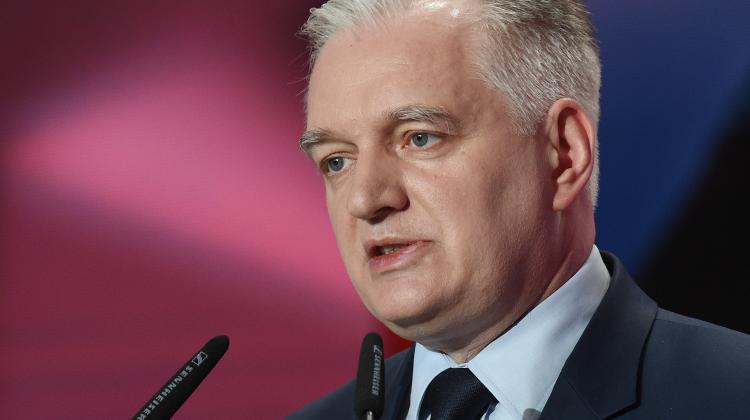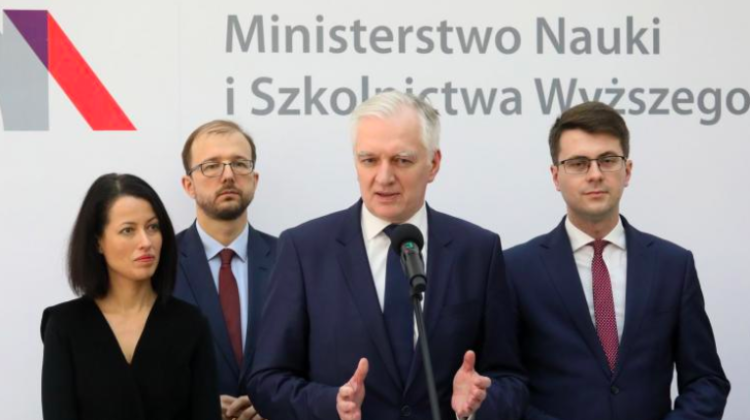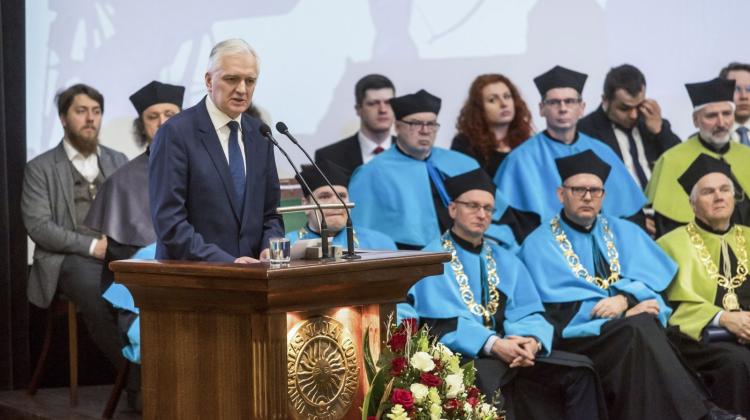Gowin: The model of mass higher education has become outdated

The model of higher education in Poland, aimed mainly at mass education, has become outdated, Deputy Prime Minister, Minister of Science and Higher Education Jarosław Gowin said on Wednesday in Gdansk.
"And this is not only because we are dealing with a demographic decline, but above all because alongside the positive aspects of such a mass education model - that is, the increase in the level of knowledge and education of the Polish society - some shadows are gradually beginning to show" - Gowin said at a press conference. Earlier he attended a meeting with the Council of Rectors of the Pomeranian Province at the University of Gdansk.
According to the Deputy Prime Minister, such negative phenomena include "decreasing quality of education" and "too little emphasis on research".
"We want to move away from mass education - the new funding rules that came into effect on January 1 already promote master-student relationship and education in smaller groups. We also want to put more emphasis on the development of research. Not only because it isa value in itself, but also because science should also translate into economic growth. If we are building an innovative economy - and such are the assumptions of the government\'s Strategy for Responsible Development - this innovative economy can only be built on the basis of the achievements and discoveries of Polish scientists" - said the minister.
Gowin said that today we are in a crucial phase of work on the new law on higher education. "I have declared from the beginning that the changes would be evolutionary, peaceful. And that this is the case - we manage to avoid political controversy for the most part. I have also announced that these changes would be implemented in a deep dialogue with the academic community. Today\'s meeting in Gdansk is an example of this dialogue" - he said.
"I have been working in higher education for a long time, and I want to say that none of the previous ministers of science has so thoroughly consulted his ideas, projects and strategies as it is done today" - emphasized Rector of the University of Gdansk, Jerzy Gwizdała.
Gowin believes that the new solutions must bring a "deep change" in the higher education sector. "And it is not about turning things upside down, because so many good things have happened in Polish universities, research institutes and institutes of the Polish Academy of Sciences over the past twenty-odd years" - he noted.
The Deputy Prime Minister hopes that the new law will come into effect on 1 October 2018.
"We are planning individual solutions so that they are introduced gradually, so that they do not involve a one-off revolution at universities, but rather give the universities time to adapt to new regulations" - noted the head of the ministry.
Another meeting in the series of program conferences of the National Congress of Science will take place in Gdansk on 26 and 27 April. We will discuss the division into different types of universities. Two of the three teams selected in the competition, representing the academic community, propose to add a third category of research universities to existing vocational schools and universities. These research universities not would compete with other universities in Poland, but rather with the best universities in Europe" - explained Gowin.
PAP - Science and Scholarship in Poland
rop/ zan/ kap/
tr. RL
Przed dodaniem komentarza prosimy o zapoznanie z Regulaminem forum serwisu Nauka w Polsce.


















